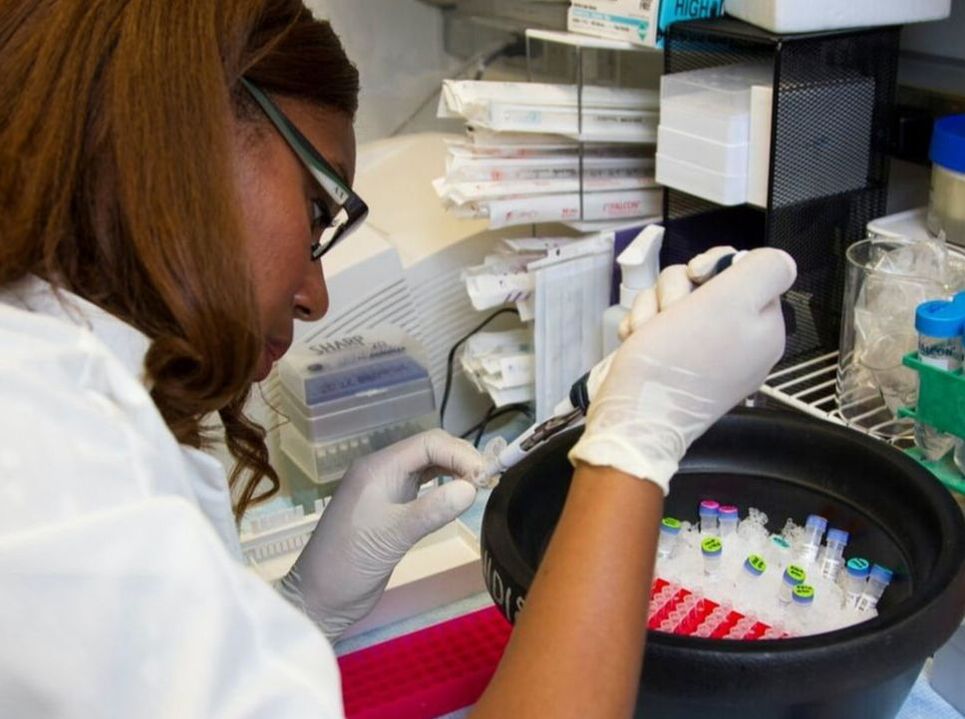|
|
|
Cross-posted from RACE.ED
It has been widely reported that the COVID-19 pandemic has disproportionately impacted Black and Ethnic Minority (BAME) communities across the UK, which have suffered higher rates of hospitalisation and mortality. While the causes of this outsized impact are yet to be fully untangled, it is consistent with longstanding disparities in health outcomes and access to medical treatment between BAME communities and the white majority. The pandemic has, in effect, brought pre-existing health inequities to the fore. With all our hopes for overcoming the pandemic resting on the success of our vaccination programme, it is essential that the jabs being put into arms have been shown to be safe and effective for people across the entire spectrum of our ethnically diverse population. This is important for two reasons. First, medical treatments can have varying effects for people of different ethnic backgrounds, and hence it is essential that clinical trials include volunteers that are representative of the different groups that make up our population. Second, people from BAME backgrounds deserve the same opportunity to build trust in vaccines. This means knowing that vaccines have been rigorously tested on volunteers from their own communities, as well as other groups.
Regrettably, the underrepresentation of BAME volunteers in UK clinical trials and other forms of medical research is pervasive. Such underrepresentation has been identified with respect to treatment development for cardiovascular disease, cancer and dementia. This is despite the fact that these and many other diseases disproportionately affect BAME groups in the UK.
This same depressing story seems to be repeating itself in the current pandemic. BAME groups have not only suffered disproportionately from COVID-19, but they have also been underrepresented in clinical trials for vaccine development. Indeed, though people with BAME backgrounds make up 13.8% of the UK population, only 5.7% of those participating in COVID-19 vaccination trials have been from ethnic minorities. Concern over this underrepresentation is well-founded. One study conducted in the US, for example, found that COVID-19 vaccines trigger a less robust immune response in Asian-Americans than in whites, suggesting that they offer less protection against the disease to this minority group. Considering that COVID-19 vaccines, like the flu jab, will need to be updated each year to tackle new virus strains, it is crucial that people from BAME groups are properly represented in future clinical trials. Otherwise, we risk rolling out yearly vaccines that provide less protection to the highest risk groups, compounding existing health inequities. Research into the causes of BAME underrepresentation in medical research suggests that rectifying the problem will require a many-pronged approach. The good news is that numerous recommendations for increasing inclusivity have already been proposed by researchers investigating this problem. One barrier to overcome is a lower level of trust among some BAME groups towards the medical profession. Such mistrust is hardly unwarranted given the experiences of discrimination in healthcare that many BAME individuals report, as well as historical examples of unethical and exploitative clinical trials being performed on ethnic minority groups. One way that the medical profession could start to rebuild this trust is through better community engagement. By liaising with respected figures from BAME communities – and by giving presentations, answering questions and disseminating informational materials in community settings – medical researchers could raise awareness of the benefits of clinical research while addressing some of the understandable concerns that many in these communities have around such research. A more practical hurdle to surmount concerns language disparities between those conducting research and potential volunteers from minority ethnic communities. While this problem can be easily solved with the use of interpreters, doing so can incur a high financial cost which funders are often reluctant to cover. Since legislation was introduced in the US to mandate proportional representation of ethnic minority participants in clinical trials run by national institutes, these costs are now routinely factored into research budgets. A similar move in the UK would help to make medical research here more inclusive. Another barrier to participation is the negative stereotypes that researchers sometimes hold towards BAME individuals. These include beliefs that people from BAME backgrounds are less interested in research and are less likely to stick to research protocols, making researchers holding these stereotypes reluctant to actively recruit from ethnic minority groups in the first place. One way to address this problem is to provide cultural awareness training to researchers and support staff involved in recruiting and engaging with research participants. This would help to challenge any negative stereotypes currently impeding the recruitment of BAME participants, as well as increasing researchers’ understanding of the concerns that people from different minority ethnic backgrounds can have around medical research. However, though this would help medical researchers better navigate some of the cultural barriers to recruiting BAME research participants, it represents only a partial solution to a much deeper issue. Statistics show that people from BAME backgrounds are woefully underrepresented in higher grade positions among university research faculty, yet overrepresented in the lowest grade positions. This means that researchers with the most say over study designs and recruitment procedures are precisely those least likely to come from BAME backgrounds. Increasing the ethnic diversity of more senior research staff should help to address all of the issues discussed here by conferring greater cultural awareness, sensitivity and credibility at the highest levels of research teams. Increasing the ethnic diversity of research staff is itself a considerable project that would require universities and other centres of medical research to overhaul their recruitment procedures. It is nevertheless essential if progress is to be made and maintained in the long-term. Concrete recommendations include introducing quotas for the number of qualified BAME candidates shortlisted for interview, anonymising applications and offering more flexible working hours. Achieving proportional BAME representation in medical research will not be achieved overnight. Nevertheless, with a coordinated and concerted effort by government, funders and research institutions, we could start making progress on the necessary changes today. Given the growing health inequalities exacerbated by the current pandemic, the urgency for making these changes has arguably never been greater.
Explore other relevant Identities articles:
Race, blood, disease and citizenship: the making of the Haitian-Americans and the Haitian immigrants into ‘the others’ during the 1980s–1990s AIDS crisis Diversity as discourse and diversity as practice: critical reflections on migrant women’s experiences of accessing mental health support in London The stigma of being Black in Britain
0 Comments
Your comment will be posted after it is approved.
Leave a Reply. |
|
Explore Identities at tandfonline.com/GIDE |
|
The views and opinions expressed on The Identities Blog are solely those of the original blog post authors, and not of the journal, Taylor & Francis Group or the University of Glasgow.


